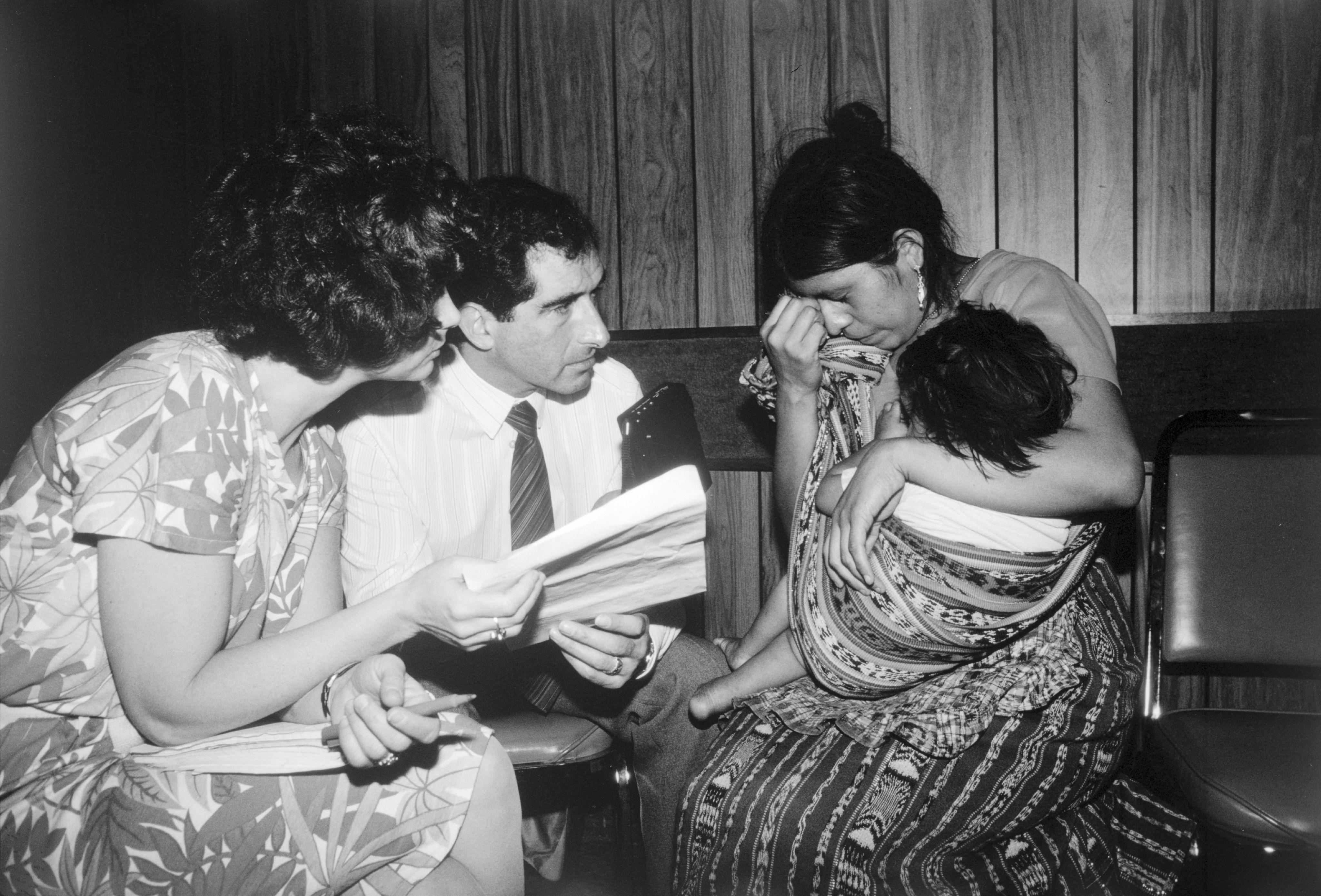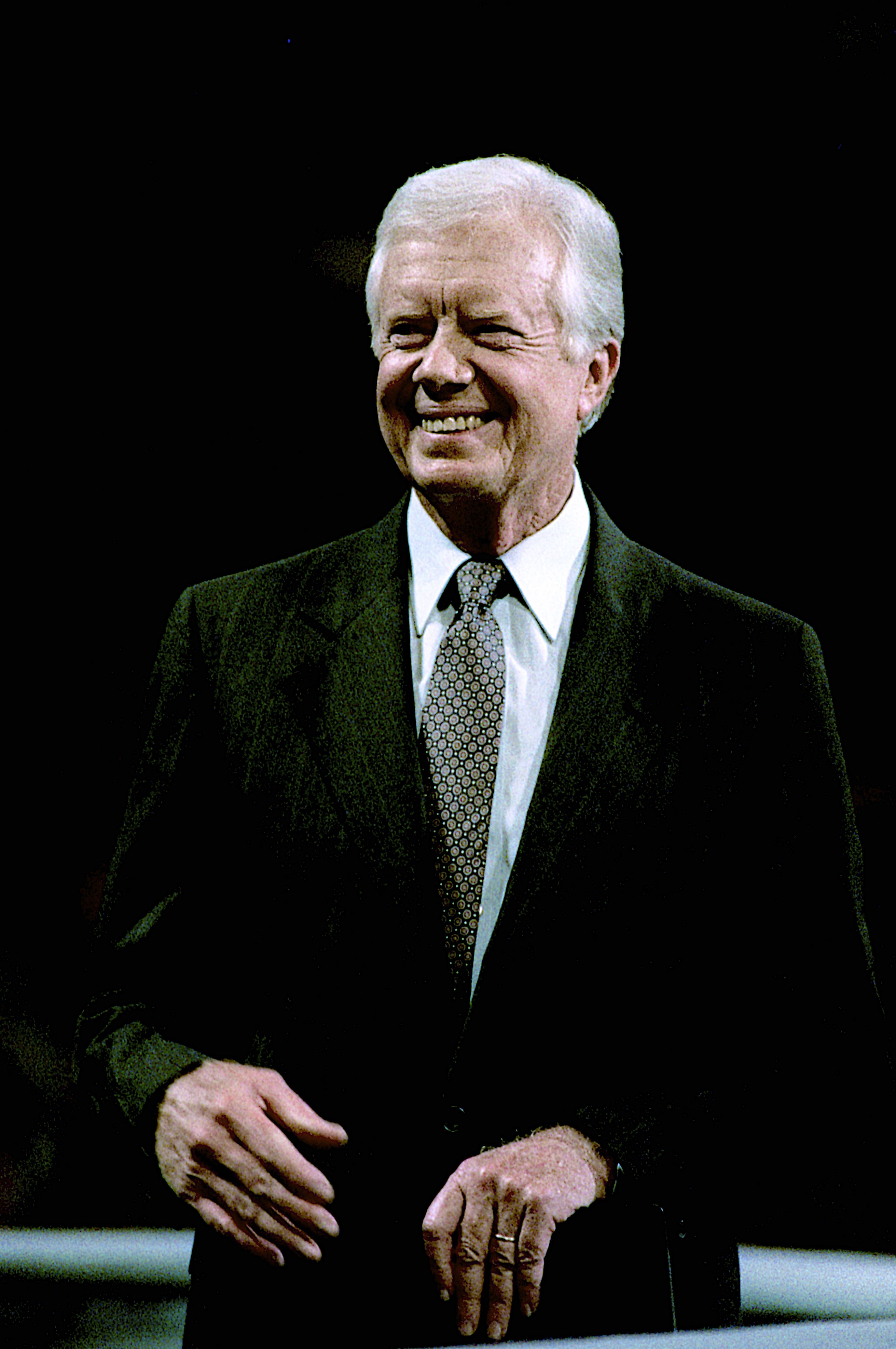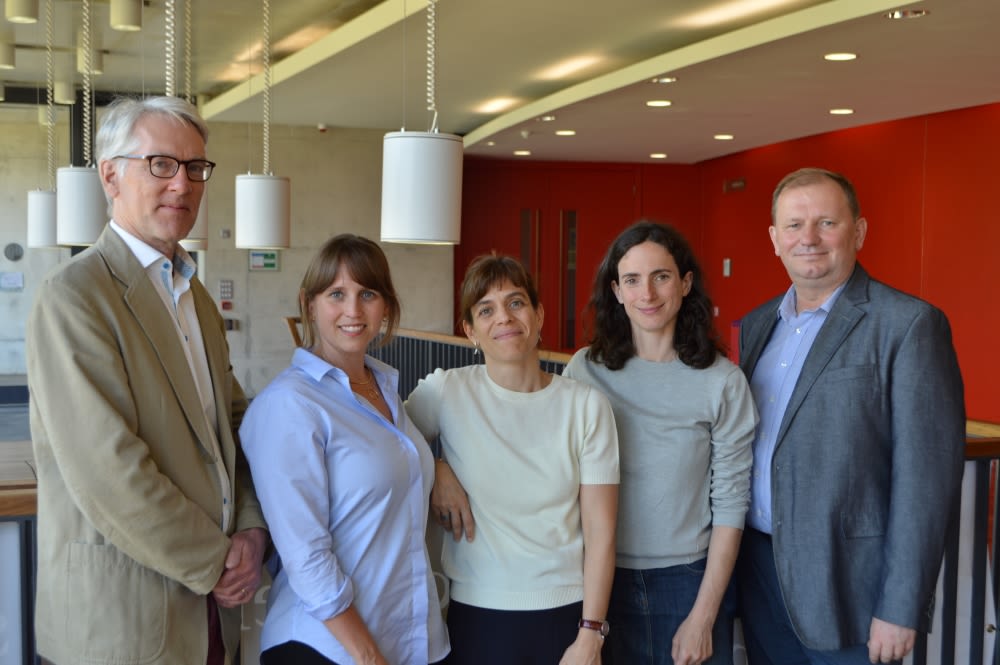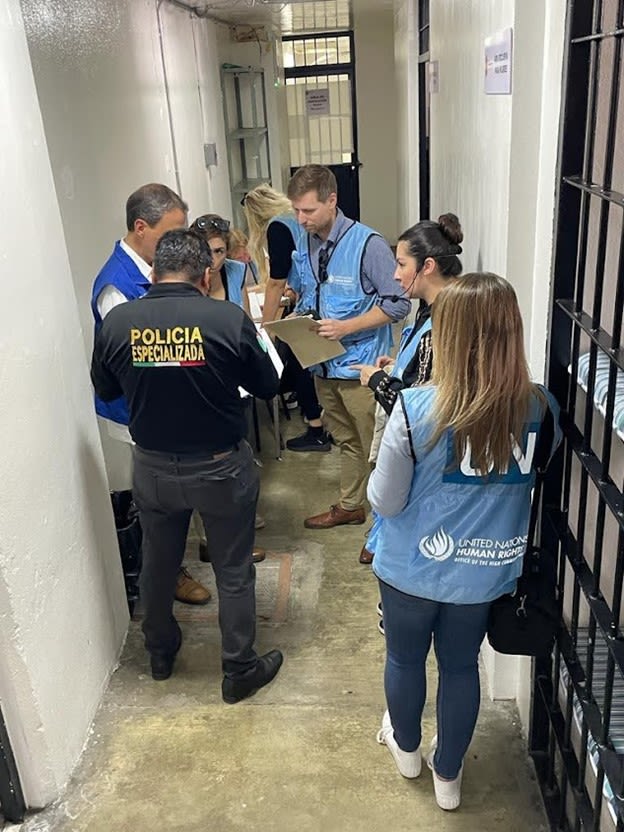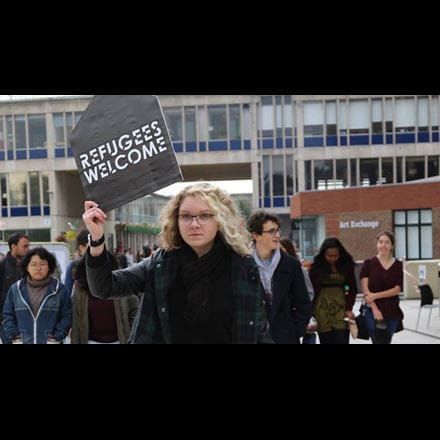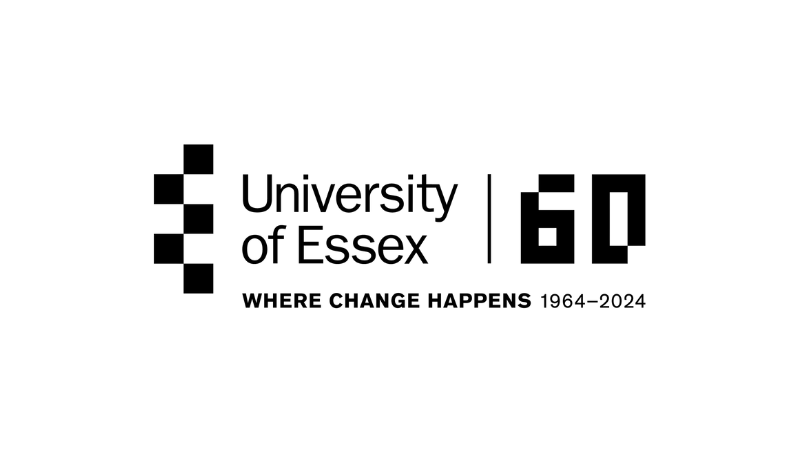Holding the World to account
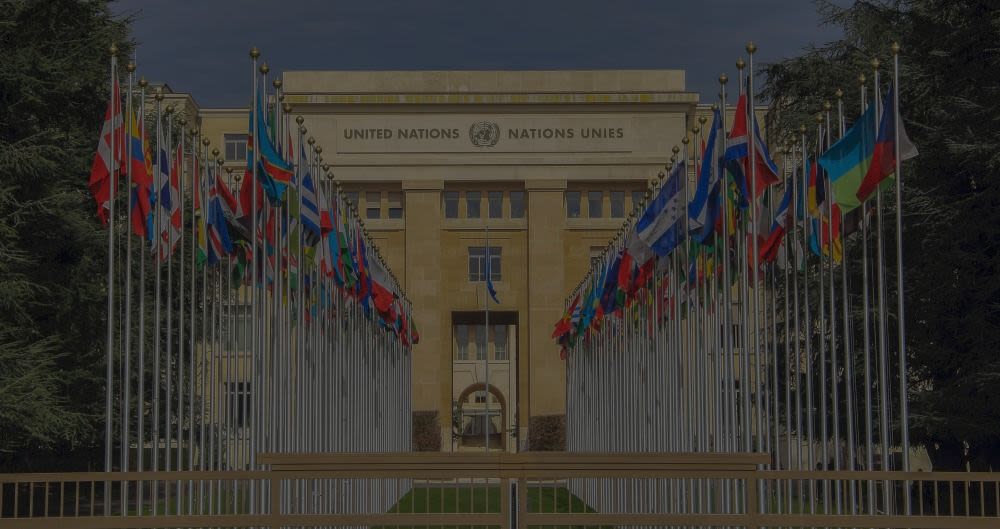
Taking a stand on combatting torture, improving access to health and standing up to intolerance is at the heart of the work of the United Nations.
When the UN needs expertise to hold Governments to account through Special Rapporteurs – the experts charged with investigating and reporting on human rights - they turn to Essex.
For more than three decades UN Special Rapporteurs based at Essex have helped investigate, expose and report on human rights challenges around the world - changing governmental standards, policies and practices to improve and save people’s lives.

Setting the benchmark
One UN expert has dubbed Essex a “capital” of the Special Rapporteur due to the number of academics involved in these key roles.
“Essex’s interdisciplinary approach to human rights and the focus on theory and practice are key features that make it very attractive to a UN Special Rapporteur,” says Professor Ahmed Shaheed.
Professor Shaheed was appointed the special rapporteur on the situation of human rights in Iran in 2011, serving in the role for more than five years.
Throughout his mandate, he was able to secure greater credibility and visibility for victims of human rights abuses in Iran, with their stories shared widely across the Global South.
He also helped trigger legal challenges in Iran, something that in turn led to significant changes such as the reduction in the use of the death penalty.
Professor Shaheed’s work in highlighting human rights issues in Iran was all the more remarkable considering the government’s refusal to directly cooperate with his UN mandate.
But Professor Shaheed’s work set the benchmark for special rapporteurs and led to the creation of new country-specific mandates.
He was indebted to legal expert Dr Scott Sheeran, who was linked to Essex from 2014 to 2019, and the work of the Human Rights in Iran Unit at Essex, which helped to train up the next generation of human rights defenders as well as provide support and advice throughout his mandate
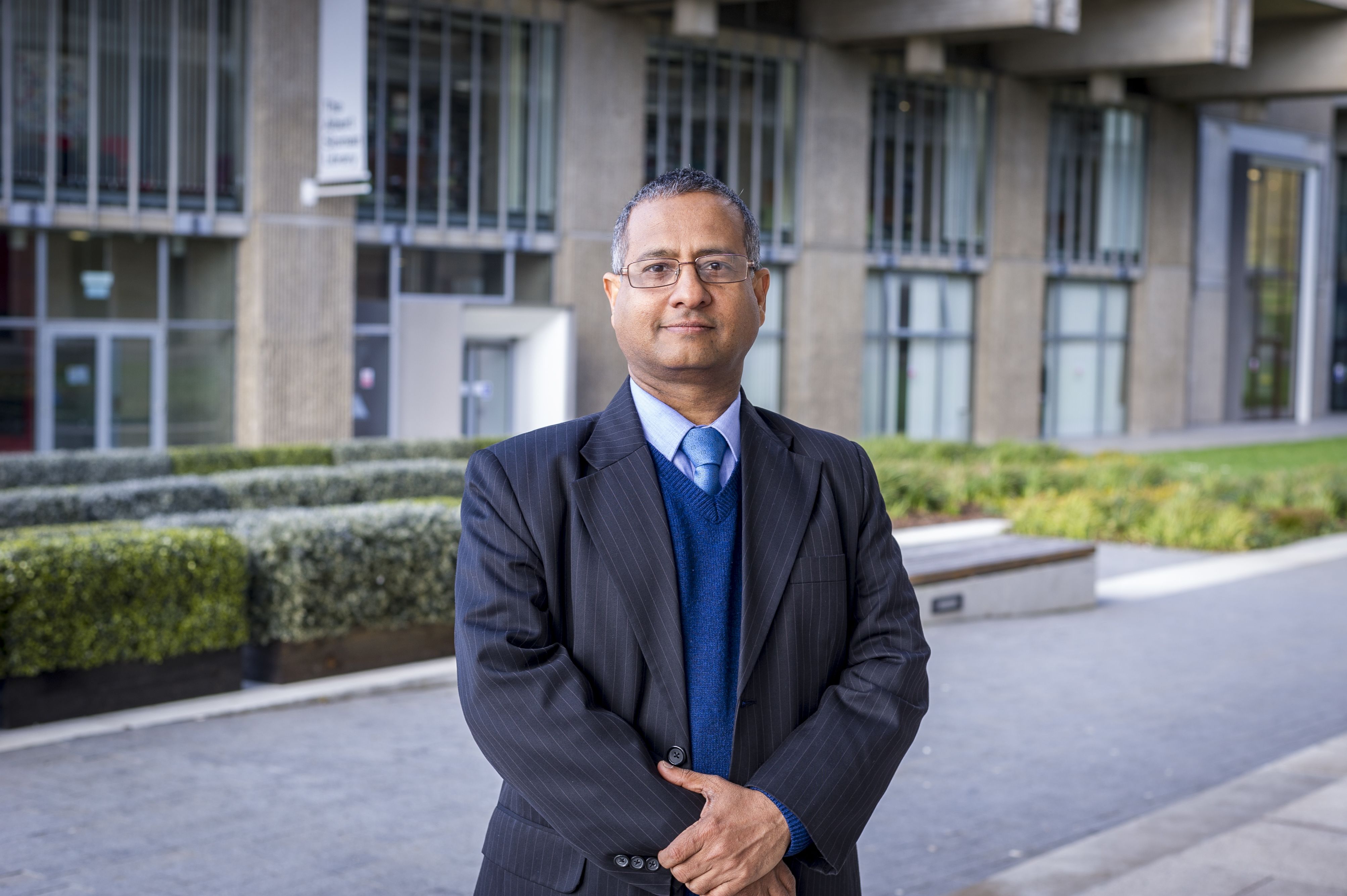
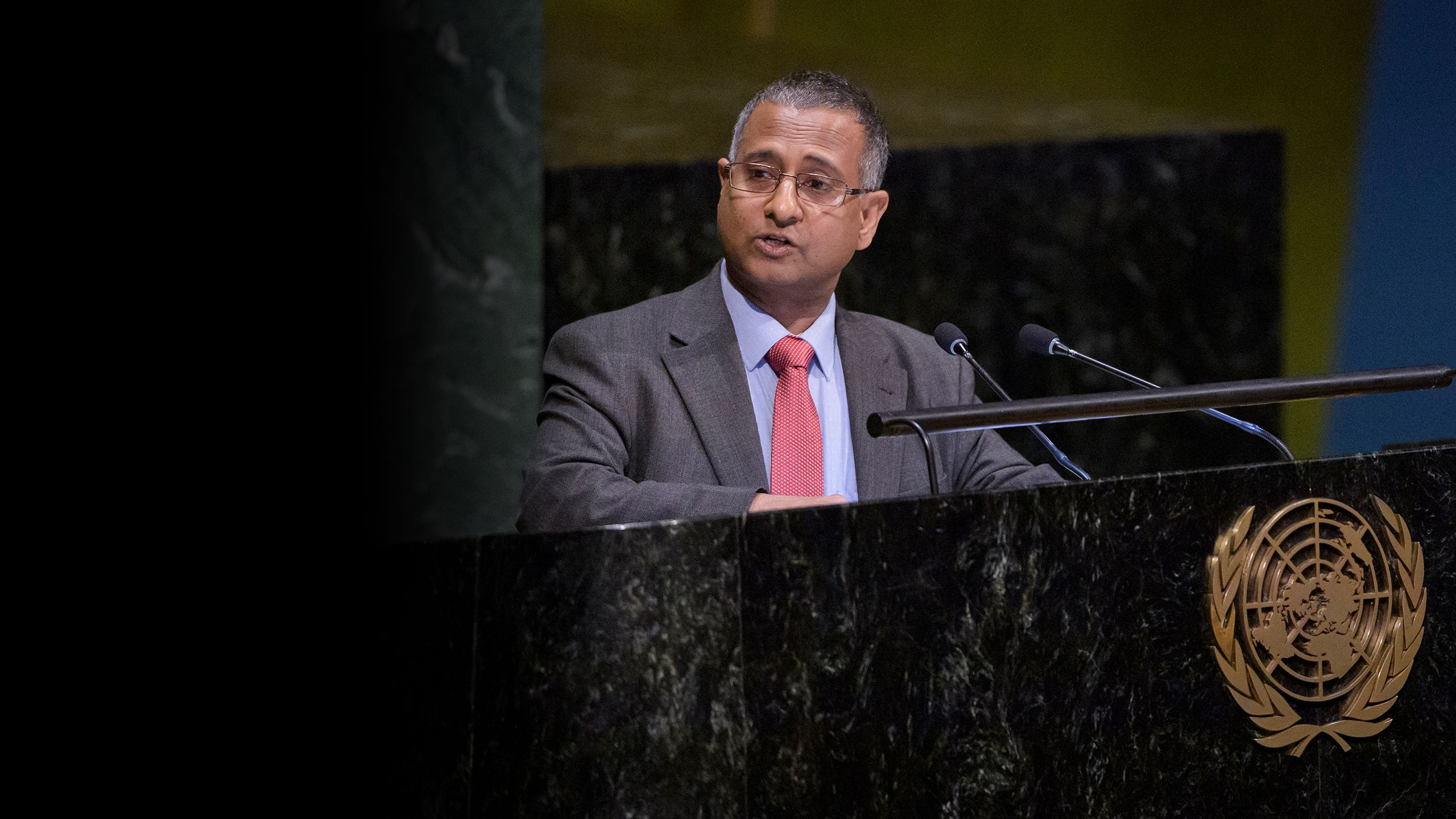
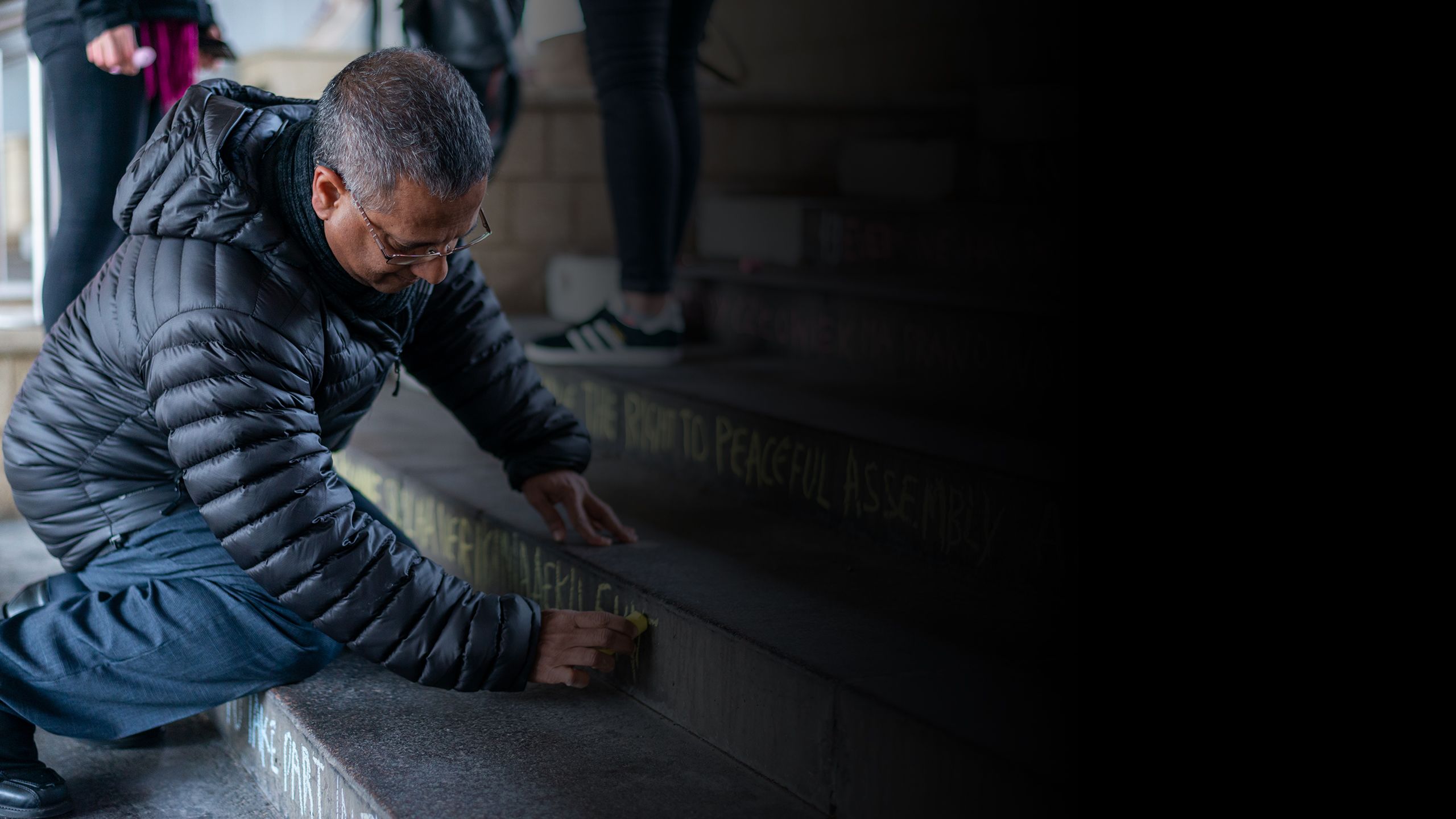
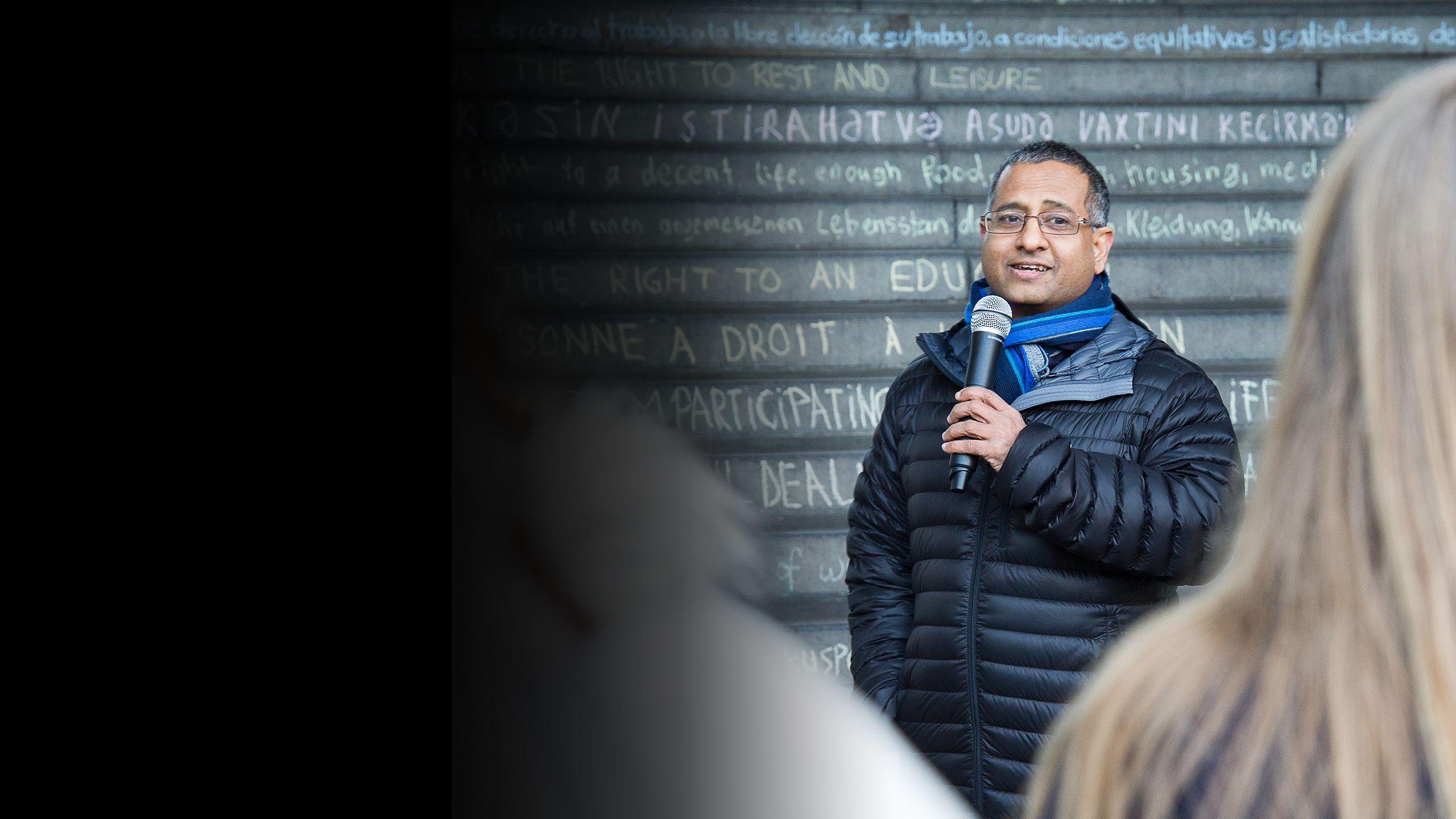
A new mandate
At the end of his mandate on Iran in 2016, Professor Shaheed took up a new role as UN Special Rapporteur on the Freedom of Religion and Belief.
It came amid a sharp rise in the profile of religion in international relations and in domestic politics across the world.
“A vastly different dimension was created with the rise of the Daesh in the Middle East and religious populism in secular democracies,” he said.
“In addition to the election of Modi in India, Bolsonaro in Brazil, Orban in Hungary and Trump in the US, rising digital authoritarianism and identity politics turbocharged by emerging technologies, created conditions in which instead of a business-as-usual, a new approach was clearly needed.”
During Professor Shaheed’s mandate – which also spanned across most of the COVID pandemic - he oversaw the closure of a notorious prison in Uzbekistan, as well as a relaxation in the country’s approach to limiting freedom of religion or belief.
Key to his work was addressing taboos and emerging issues, along with long-running challenges which had been neglected.
One of Professor Shaheed’s biggest projects during his time as Special Rapporteur for Religion was a major study on antisemitism around the world.
The report exposed shocking levels of antisemitism across the globe, including in countries where there are no known Jewish communities.
Professor Shaheed said: “Many Jewish people feel on a daily basis that they cannot walk on the streets, or take a train without being affected by it and if you were for example to take a Jewish school in Europe, many countries have ones that look like garrisons.
“That’s not an environment where young children should be growing up because they will ask why does a school look like a military fort.”
In his report, Professor Shaheed called for all UN countries to adopt the same definition of antisemitism as a starting point for tackling the issue, along with a greater emphasis on education.
Essex’s first Special Rapporteur
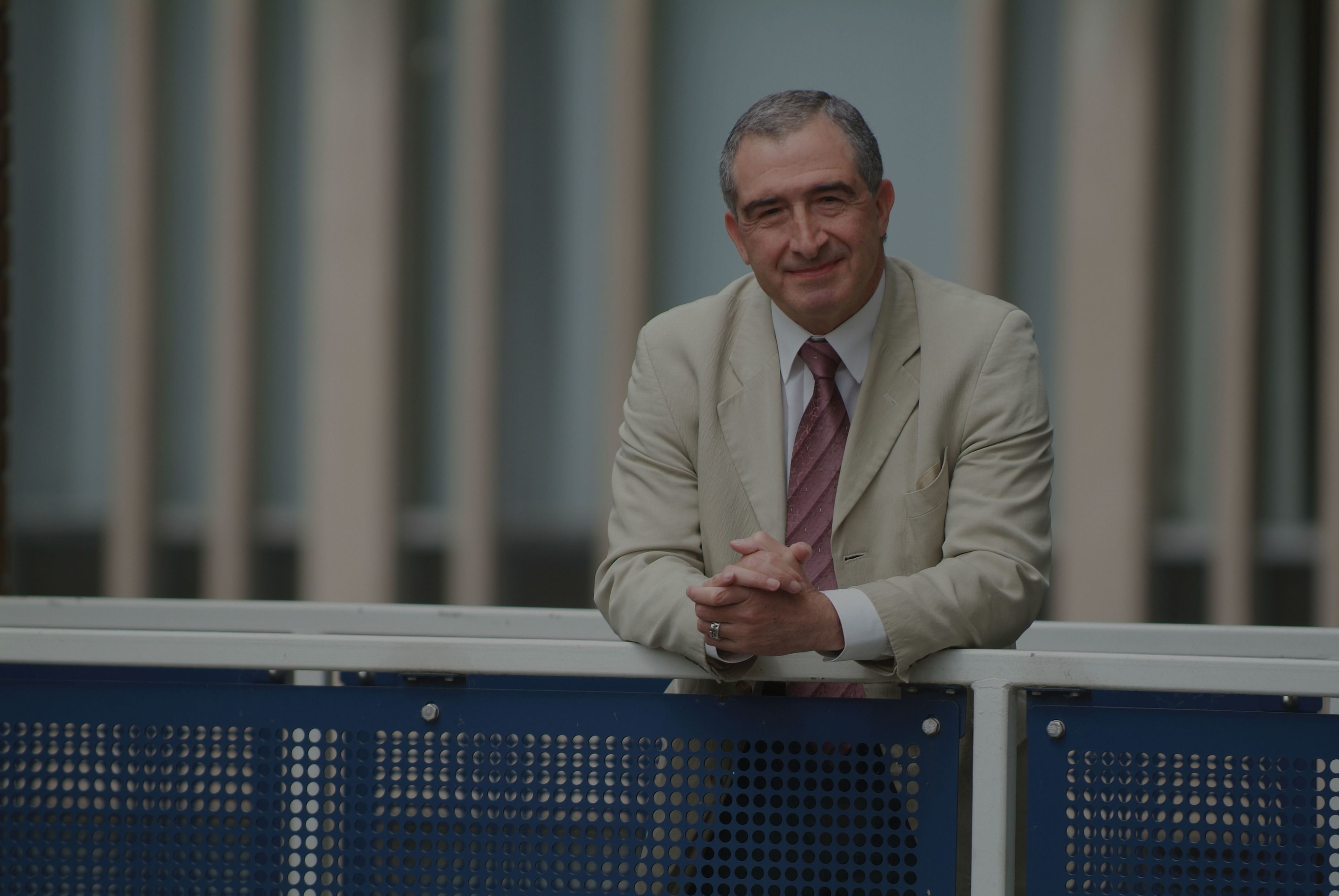
The pioneering Professor Sir Nigel Rodley was the first Essex academic to be asked to take up a mandate as a Special Rapporteur.
He was the Special Rapporteur for Torture between 1993 and 2001.
Renowned as one of the founding fathers of the human rights movement, he exposed some of the worst human rights abuses and violations committed by governments in the 1990s.
During his mandate, Sir Nigel visited prisons in 18 different countries that were suspected of ill-treatment, and was frequently able to negotiate improvements in conditions.
A visit to Brazil in 2000 exposed ill treatment and abuse towards people going through the detention process.
"It does not happen to all or everywhere," Sir Nigel said after his visit. "Mainly it happens to poor, black criminal suspects accused of having committed petty crimes or small-scale drug distribution."
Sir Nigel was insistent that rules developed to protect political prisoners against brutality should be applied equally to common criminals.
He also called for forms of corporal punishment, such as caning, to be recognised as torture, and took an important initiative in declaring that rape could also meet the criteria in some circumstances.
Sir Nigel went on to serve on the UN’s Human Rights Committee for 16 years, including as its Chair, monitoring state efforts to comply with the provisions of the international Convention on Civil and Political Rights.
Credit: Jean-Marie Simon/ Amnesty International
Credit: Jean-Marie Simon/ Amnesty International
“Sir Nigel possessed a brilliant legal mind and was a committed advocate to the cause of universal human rights.
“He emphasized the importance of helping the United Nations become a more effective champion for those whose rights are routinely violated by governments.”
Improving the Right to Health
Professor Paul Hunt served as the UN’s very first Special Rapporteur for the right to health between 2002 and 2008. He had previously served as an independent expert on the UN’s Committee for Economic, Social and Cultural Rights for 10 years.
As a Special Rapporteur, Professor Hunt undertook numerous trips around the world, highlighting issues such as maternal mortality, and sexual and reproductive health rights, as well as developing a right to health framework for his successors to follow.
A recurrent theme throughout Professor Hunt’s mandate was access to medicines, a topic he regularly challenged governments’ around the world to improve.
He worked with Essex Human Rights Centre alumni Rajat Khosla to develop access-to-medicines guidelines for pharmaceutical companies around the world to address claims it was their own policies and practices blocking people’s access to medicine.
Co-Deputy Director of the Human Rights Centre Judith Bueno de Mesquita was Senior Research Officer to Professor Hunt during his time as UN Special Rapporteur.
One of the pioneering contributions of Professor Hunt and his team, and a lasting legacy, is the advancement of conceptual frameworks to assess the actual effort made by the states to fulfil their human rights obligations, as well as tools to do so, including indicators and impact assessments.
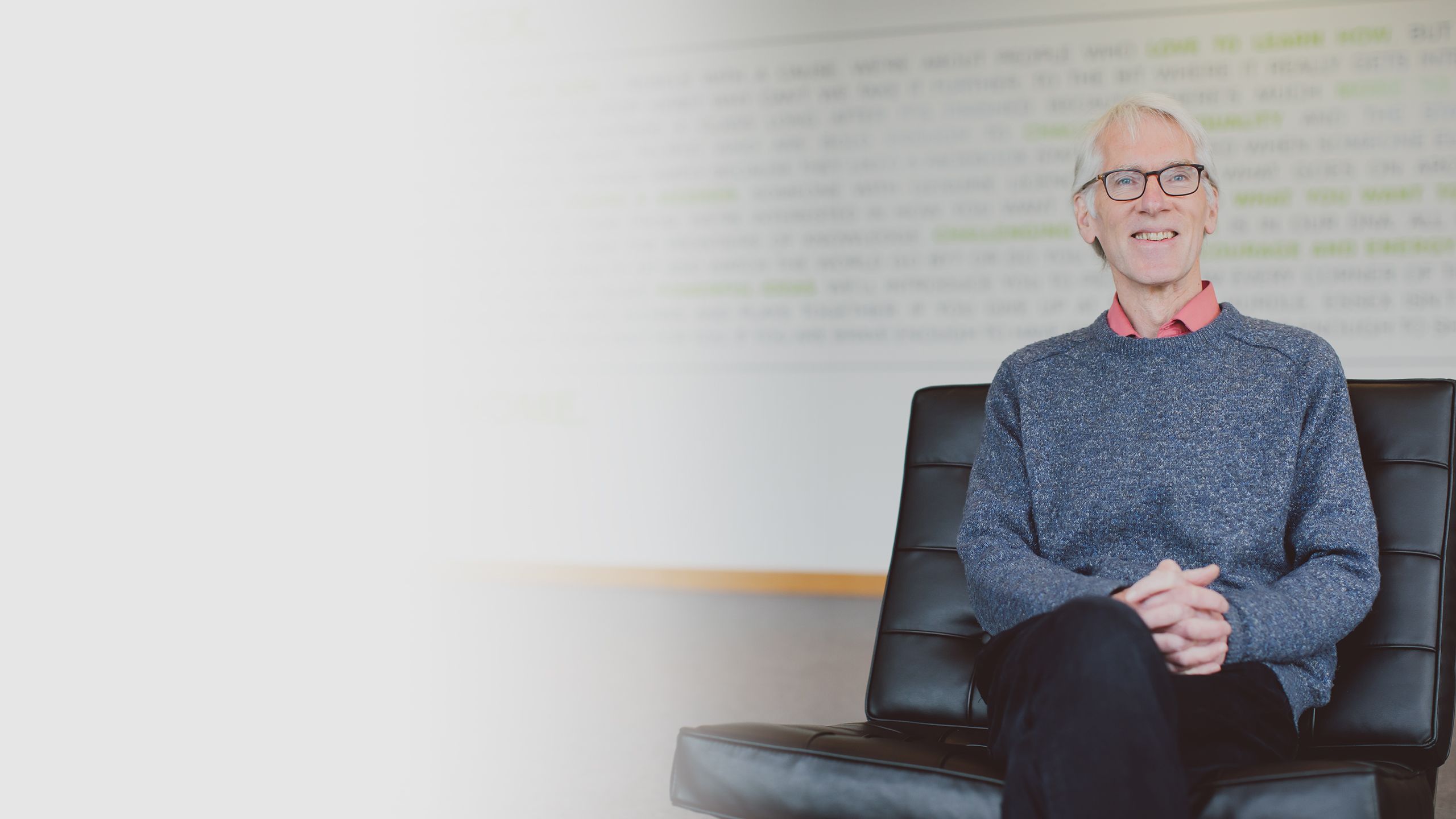
“I knew Professor Hunt from his mandate and wanted to consult with him because we have a mutual interest. With Dr Shaheed and Professor Sir Nigel Rodley as well, Essex has a reputation as a capital of mandate holders, and I am very happy to be making this list of names a little longer.”
Dr Dainius Pūras, UN Special Rapporteur for the Right to Health 2014-2022
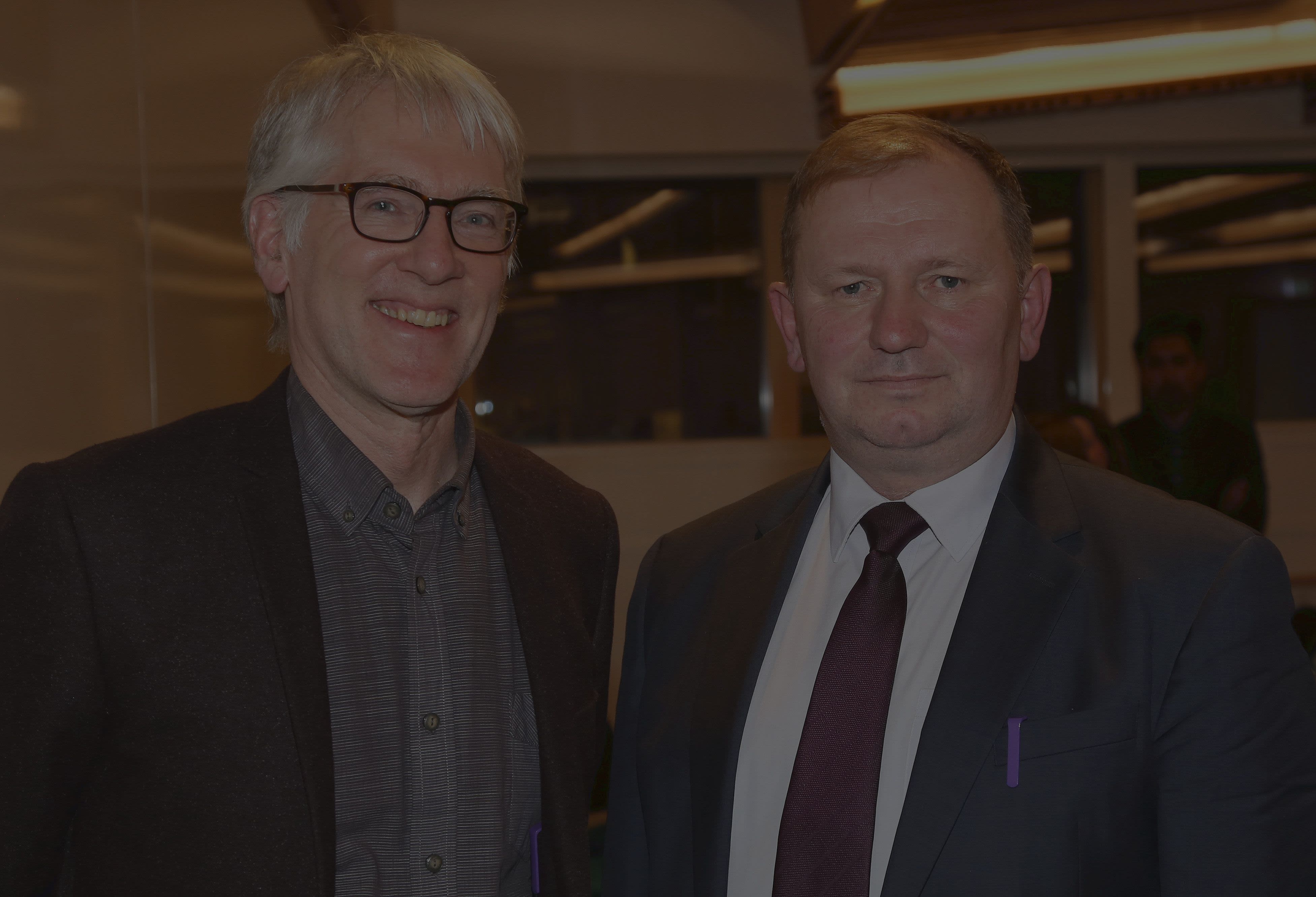
Professor Hunt continued to support his successors, and was instrumental in Essex’s partnership with the Special Rapporteur for Health between 2014 and 2020, Dr Danius Pūras.
Dr Pūras became a Visiting Professor at Essex in 2015, teaming up with academics from the Human Rights Centre.
Among those who supported him was Julie Hannah, Director of the Essex-based International Centre on Human Rights and Drug Policy and Judith Bueno de Mesquita who provided research assistance to Dr Puras.
Julie worked with Dr Pūras in an advisory role from 2015, undertaking research, helping draft UN reports, building networks and co-authoring publications.
They campaigned together for a rights-based approach to mental health care, support and promotion, producing a landmark series of reports articulating the contours and content of the right to mental health. These reports centred on lived experience, social justice, and the importance of our psychosocial environment in how we transform mental health systems to ensure full compliance with the right to health. Since their publication they have catalysed activism in this area.
Julie said: “The legacy of this work will help foster a better understanding of what it means to undertake a rights-based approach to mental health and provoke important global conversations on how to appropriately and ethically invest in mental health transformation around the world.”
Speaking about their partnership in 2019, Julie said: “It’s likely that Dr Pūras’ successor will not have expertise in mental health so it’s crucial that we concretise what has been achieved since 2014 to ensure mental health remains a priority in the way the next UN Special Rapporteur assesses and monitors states’ compliance with the right to health.”
Continuing the Essex tradition
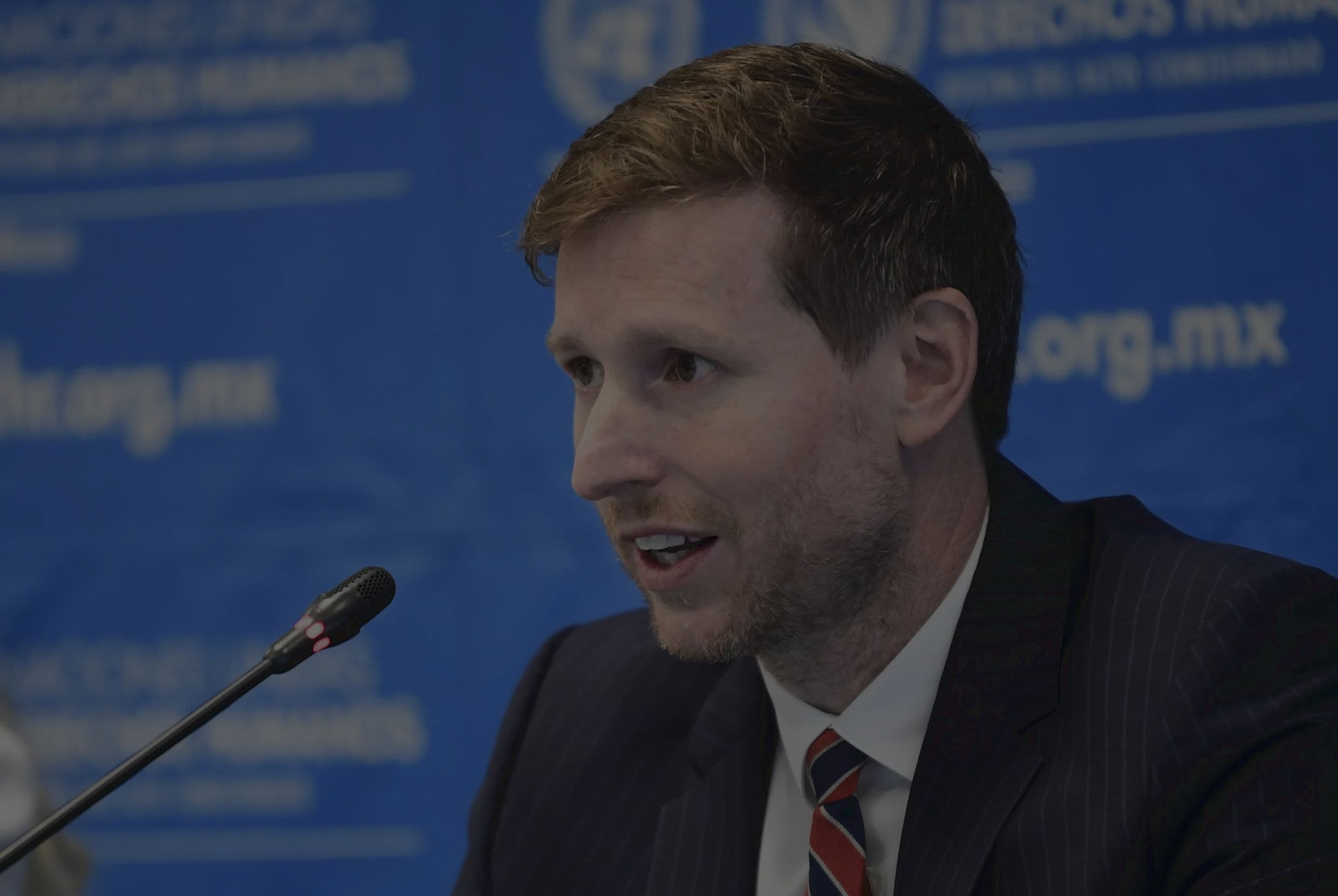
Essex academics continue to be closely involved in efforts by the United Nations to operationalise human rights at a global level.
Judith Bueno de Mesquita has built on her work with Professor Hunt and Dr Pūras through her further roles with the UN and World Health Organisation plus our Human Rights Clinic.
This includes working with the United Nations Population Fund (UNFPA) in Azerbaijan and Kosovo to assess approaches to sexual and reproductive health. This supported significant progress and provided useful examples of how national legislative and policy frameworks can help realise States' commitments in relation to the progressive realisation of the right to health.
Julie Hannah has supervised a range of projects including working with the Human Rights Clinic at Essex, to produce research for UN human rights mechanisms. She has also co-led the International Centre on Human Rights and Drug Policy, based at the Human Rights Centre at Essex and the United Nations Development Programme (UNDP), which has developed new international guidelines. Now Julie is leading on their implementation around the world.
In 2022, the Office of the High Commissioner for Human Rights (OHCHR) recommended the International Guidelines on Human Rights and Drug Policy developed by the Centre should be part of the UN joint action plan to improve human rights in the Philippines.
In 2023, the Guidelines were endorsed by a United Nations Human Rights Council resolution and city and community leaders discussed how the guidelines are being used to develop more humane, evidence-based and effective approaches to drug policy at the Cities Summit of the Americas (CSOA) in Denver.
Dr Matthew Gillett is the latest Essex academic ensuring accountability and oversight through a UN Special Procedures mandate.
He was appointed to the UN Working Group on Arbitrary Detention in April 2022, and then was elected Vice-Chair in April 2023. The Working Group comprises an expert from each of the five geographic regions identified by the UN.
Dr Gillett went to Mongolia for the Working Group in 2022 and led a delegation of the Working Group on a visit to Mexico in September 2023.
In Mexico, they discovered widespread arbitrary detention, which can be a gateway to ill-treatment, torture and extra-judicial executions. They found that arbitrary detention is taking place across a range of settings such as police stations and migrant detention centres.
Dr Gillett said: "Talking to detainees in prisons, immigration stations, and adolescent centres is critical for human rights fact-finding. These interviews confirmed that Mexico requires further reforms to end arbitrary detention."
The Working Group will liaise with the Mexican Government to help them address the concerns raised, before submitting a full report to the United Nations Human Rights Council in September 2024.
Find out more
Human Rights Centre
40 years pioneering the theory and practice of human rights from the local to the global.
Study Human Rights at Essex
Studying human rights develops the skills and confidence to advocate for individual and community rights, social justice and social change.
Sixty Stories
We’re celebrating 60 years of making change happen. 60 years of boldness and bravery from our students past and present. 60 years of creating change.

